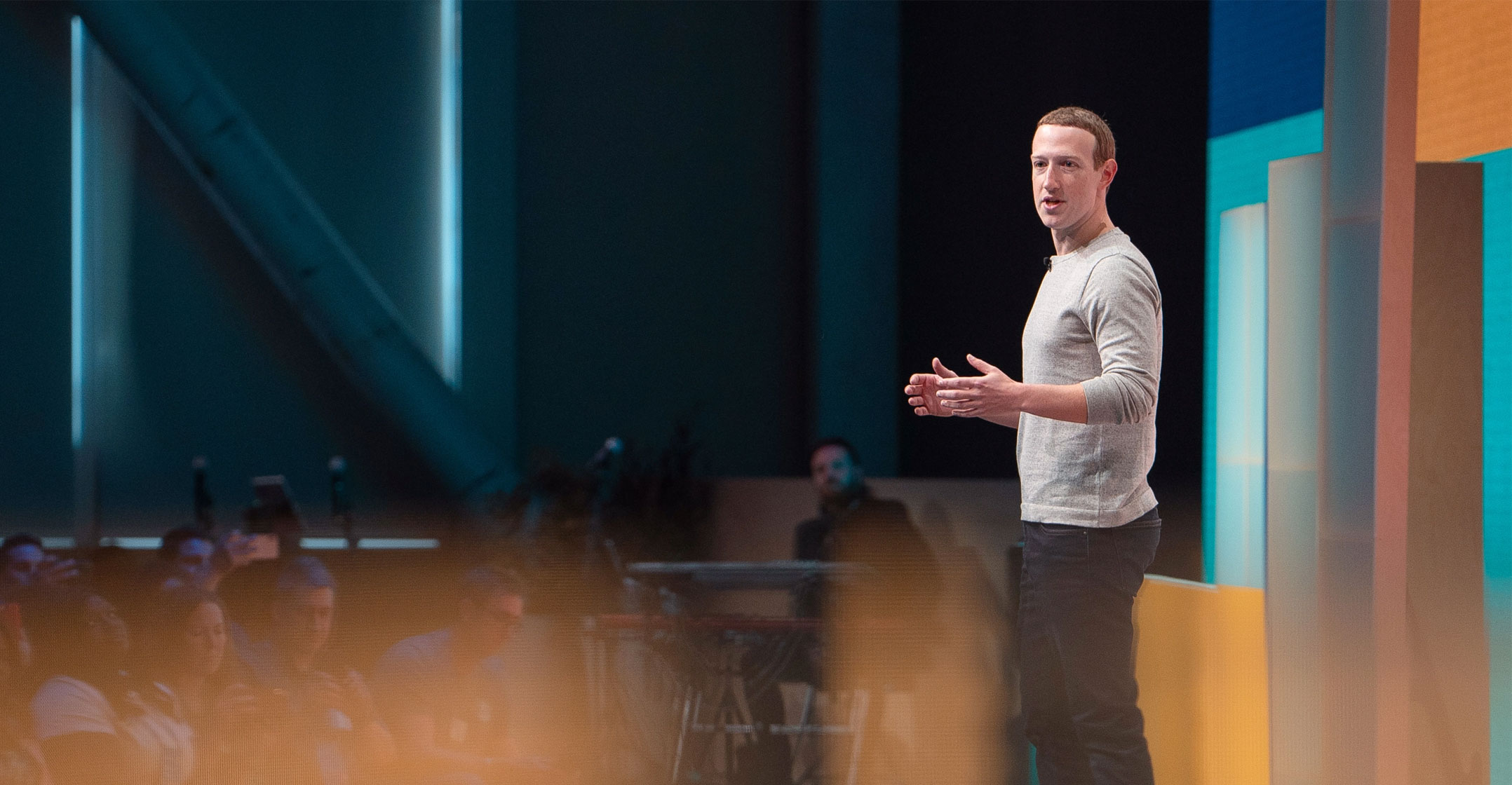
Mark Zuckerberg emerged mostly unruffled after two gruelling days of US congressional hearings, reassuring investors with his composure even as lawmakers scoffed at his apologies over failures to protect user privacy and his assurances to do better.
Sitting alone at a witness table before US senators on Tuesday and house members on Wednesday, the co-founder of Facebook stuck closely to his intended theme that the world’s largest social network didn’t do enough to prevent its tools from being used for harm and to his mea culpa: “It was my mistake and I’m sorry.”
The broad scepticism by lawmakers of both parties was captured with an equally concise question posed by representative Janice Schakowsky, an Illinois Democrat: “Who’s going to protect us from Facebook?”
Zuckerberg’s trip to Washington came after weeks of damaging reports about the social network’s data practices. Information from as many as 87m users was siphoned to Cambridge Analytica, a British firm with ties to US President Donald Trump’s 2016 campaign. In addition, Russian operatives used bogus accounts in an effort to sow discord and shape voter opinion during the campaign.
Democrats, and some Republicans, said the answer lies in more federal regulation of technology platforms, and Zuckerberg said some government action may be in order. Members also made clear they expected him and Facebook to get back to them with better answers to many of their questions.
But the 33-year-old CEO’s performance buoyed shares. The stock gained 1.3% to US$167.11 at 2.58pm in New York on Wednesday after rising 4.5% the day before.
While some lawmakers said they appreciated Zuckerberg’s patient cooperation, others said the CEO — who didn’t stop at any point to ask for help from underlings lined up behind him — fell short.
“As CEO, you didn’t know some key facts,” said Debbie Dingell, a Michigan Democrat, ticking off a list of questions Zuckerberg said he’d get back to members on, from “major court cases regarding your privacy policy” to “all the kinds of information Facebook is collecting from its own users”.
‘Alarming reports’
Representative Greg Walden of Oregon, the house panel’s Republican chairman, said Zuckerberg needed to account for “alarming reports of breaches of trust between your company — one of the biggest and most powerful in the world — and its users”.
While the criticism was bipartisan, members of the Democratic minority were more assertive in saying expanded government regulation is the answer.
Representative Mike Doyle, a Pennsylvania Democrat, said: “The only way we’re going to close this trust gap is through legislation that creates and empowers a sufficiently resourced expert oversight agency with rule-making authority to protect the digital privacy and ensure our companies protect their users’ data.”
But representative Fred Upton, a Michigan Republican, said regulation “could create a harmful barrier to entry for some start-ups, particularly ones that might want to compete with you”.

Among questions fired at Zuckerberg — who revealed that his own Facebook data was sold to malicious parties — and his responses:
- Democratic representative Frank Pallone of New Jersey asked for a yes-or-no answer on whether he’d commit to changing default settings to minimise the collection of users’ data. Zuckerberg demurred, saying, “This is a complex issue that I think deserves more than a one-word answer.” The lawmaker called that answer disappointing.
- Republicans suggested repeatedly that Facebook was biased against conservatives, which Zuckerberg denied. Representative Joe Barton, a Texas Republican, pulled out his phone and read a constituent’s question about Facebook silencing conservative commentators known as Diamond & Silk. Zuckerberg called that an “an enforcement error” that’s been resolved.
- Walden pressed Zuckerberg on whether Facebook is a media company or a financial institution, categories that have traditionally faced federal regulation. He replied that it’s “a technology company, because the primary thing we do is have engineers that write code and build products”.
- Facebook will offer users worldwide the privacy options demanded by European countries in a regulation taking effect in May, Zuckerberg told representative Gene Green, a Texas Democrat. “All the same controls will be available around the world,” Zuckerberg said.
- Zuckerberg said Facebook has tried to take down posts promoting illegal opioid sales without prescriptions but that it’s impossible for human monitors to catch all such traffic until artificial intelligence tools become advanced enough to do so. “You said you would take them down, and you didn’t,” said representative David McKinley, a West Virginia Democrat.
- Zuckerberg acknowledged that the social network in some cases collects digital information on consumers who aren’t registered as users. “In general we collect data on people who are not signed up for Facebook for security purposes,” he said.
- Representative Yvette Clarke, a New York Democrat, asked whether a lack of diversity at Facebook left the company blind to Russian attempts to inflame minority groups through bogus postings in 2016. “I agree that we need to work on diversity,” Zuckerberg said, although he said the 2016 postings stemmed from a failure to identify “the whole Russian information operation.”
- Discussing the role of a Cambridge University professor in the data captured by Cambridge Analytica, Zuckerberg said it’s necessary to determine “whether there’s something bad going on at Cambridge University overall that will require stronger action”.
The university in the UK issued a statement saying findings by its researchers on “what an individual’s Facebook statement says about them” has been published “since 2013 in major peer-reviewed scientific journals”. It said the research included one study in 2015 led by the professor, Aleksandr Kogan, and co-authored by two employees of the social network. The university said it asked Facebook for evidence to support its claims about Kogan but hasn’t received a response. — Reported by Todd Shields, Sarah Frier and Ben Brody, with assistance from Billy House and Gerrit De Vynck, (c) 2018 Bloomberg LP




